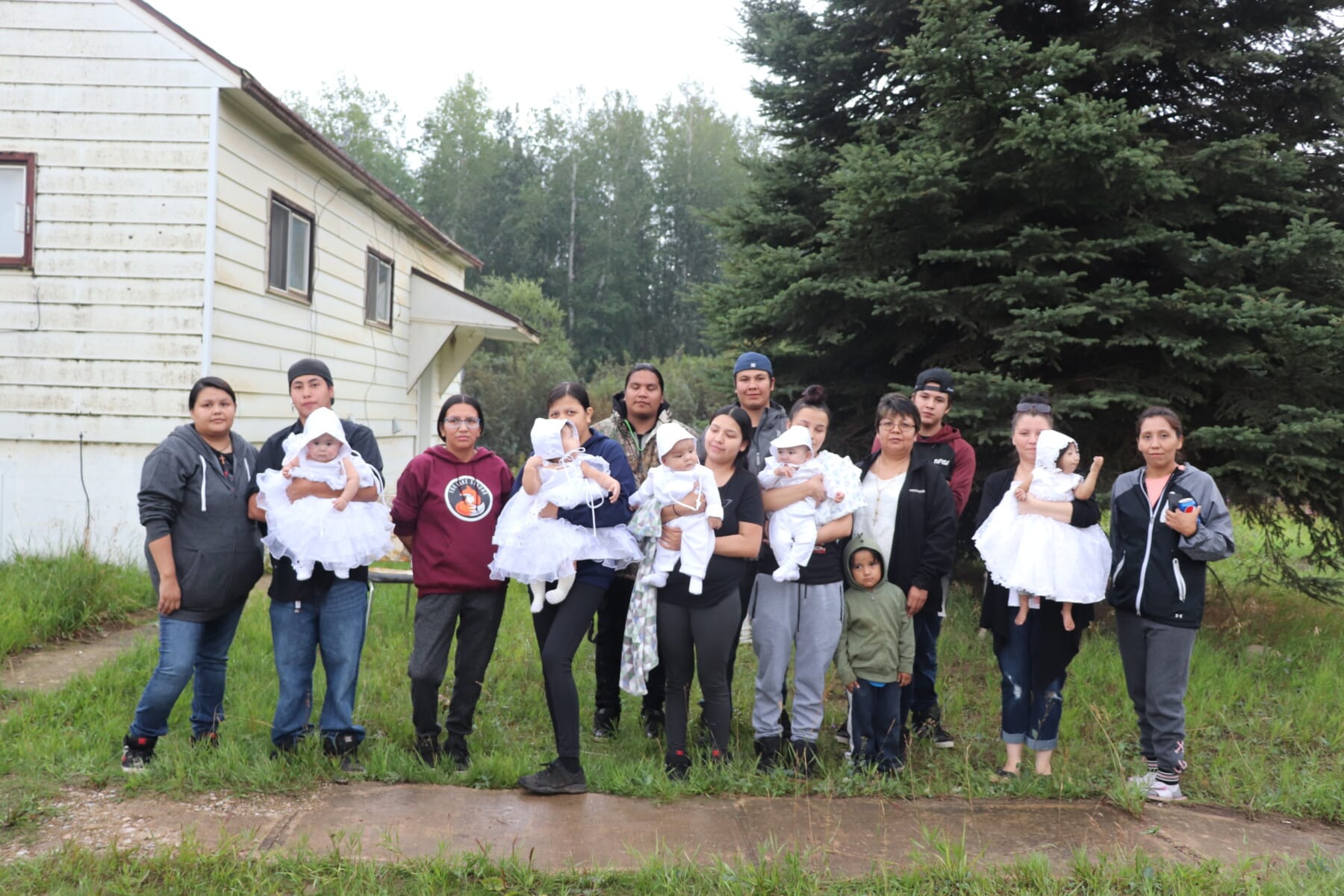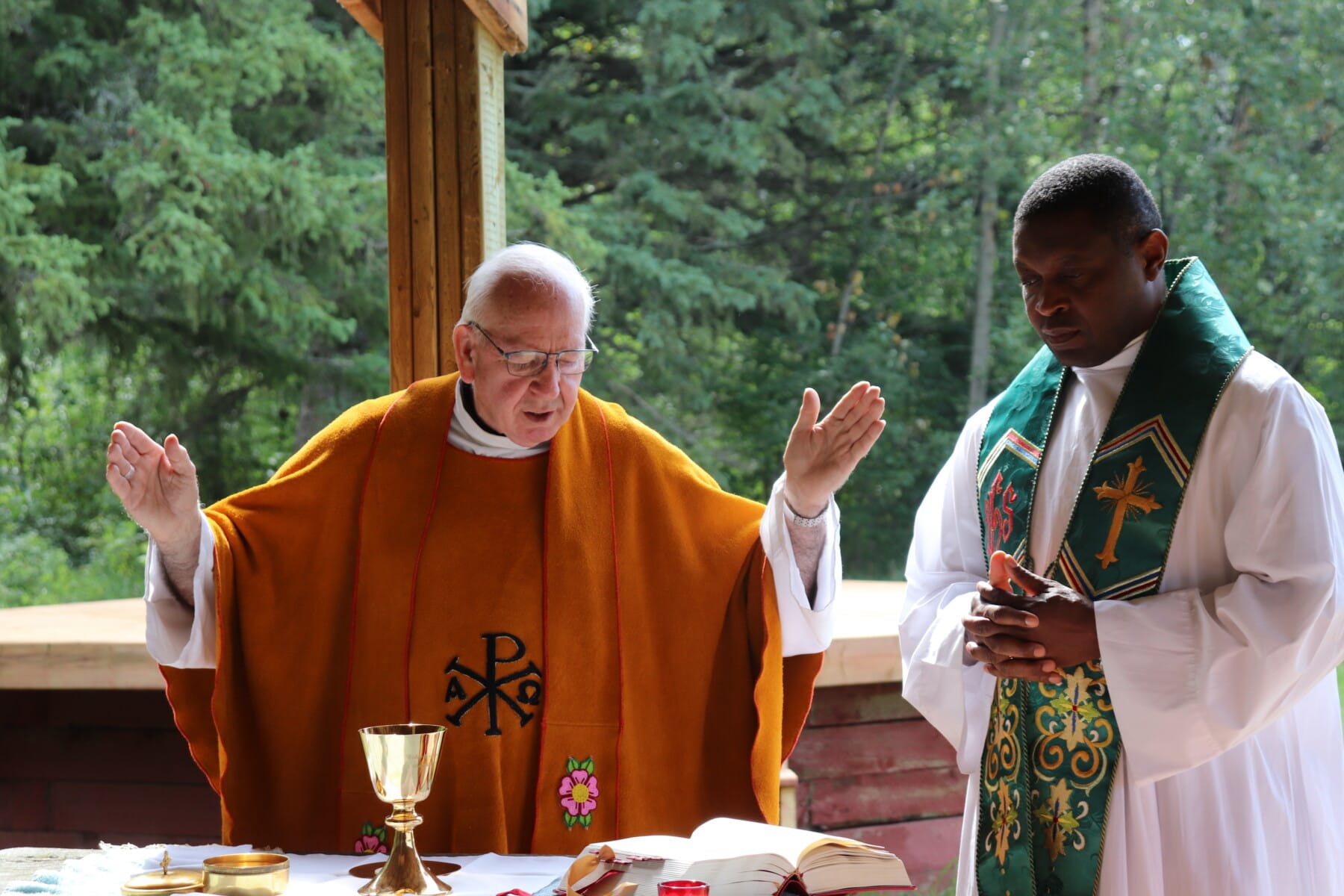
The strength to rebuild
Little Red River community celebrate one-of-a-kind pilgrimage after devastating wildfire
There’s an old saying that, if you want to make God laugh, tell Him you have plans.
It’s a reminder of the unpredictability of life: that the goals, ambitions and schemes we plot out for ourselves rarely end up coming to fruition – at least in the ways we expect them to. The Lord has a plan of his own, one far above our own machinations, and we earn God’s amusement when we delude ourselves into thinking both our vision and His are identical. Wound up in the seeming chaos of everyday life and frustrated that the plans we had in mind are not unfolding as we’d like them to, only in hindsight do we usually clue into what it was God had in mind for us all along.
Nowhere did this tidbit of wisdom seem more applicable than during a recent trip to Little Red River Cree Nation this past August for the annual Queen of the North Pilgrimage. The journey was made by myself, Archbishop Gerard Pettipas, a new priest in our diocese Fr. Stanislaus Okonkwo, and driver and Grande Prairie parishioner Ken Landry.
This annual pilgrimage has been a longstanding tradition for the Little Red River Nation, taking place in an open field along the river and the old route of the Hudson Bay fur-trading post. Begun in the 1970s by a group of elders, parishioners, missionary priest Fr. Paul Hernou and Chief Johnson Sewepaham, it has continued every year as a constant bond of community and faith for the people of Fox Lake, John D’Or Prairie and Garden River.

We began the journey expecting that this year’s pilgrimage would likely be a little different from previous years, though we could never have predicted just how different it would be. Fox Lake, the community closest to the pilgrimage site, was the most hard-hit community in Alberta by this year’s intense run of wildfires. The fire took over much of Fox Lake and lead to the evacuation of nearly 4,000 people – many of whom ended up losing their homes and properties.
The large general store in Fox Lake was destroyed, as was the RCMP station, the water treatment facility, and other key places of the community.
Given the extent of the damage and the very sudden decision by the Fox Lake band to go ahead with the pilgrimage, we knew not what would be in store for us as we took off for the nine hour trek from Grande Prairie to Fox Lake.
In the midst of the devastation of the wildfire, Little Red River’s Chief and Council encouraged organizer Rhoda Wapoose to go ahead with this year’s pilgrimage, in hopes that it would offer the people of Fox Lake some sense of normality. As a further sign of support, funding was given for new benches, flooring and other needed repairs for the pilgrimage site, and the chief himself donated $5000 in religious items for this year’s pilgrimage.
“Initially we thought, because the devastation was so huge, that we would not do it this year,” said Rhoda Wapoose. “And then the band had a meeting in July and I said, ‘The people want to know if we’re going to have pilgrimage this year.’ And right away the chief and council said, ‘Yes. Go ahead and have it; the people will need it.’ But we hadn’t prepared at that point.”
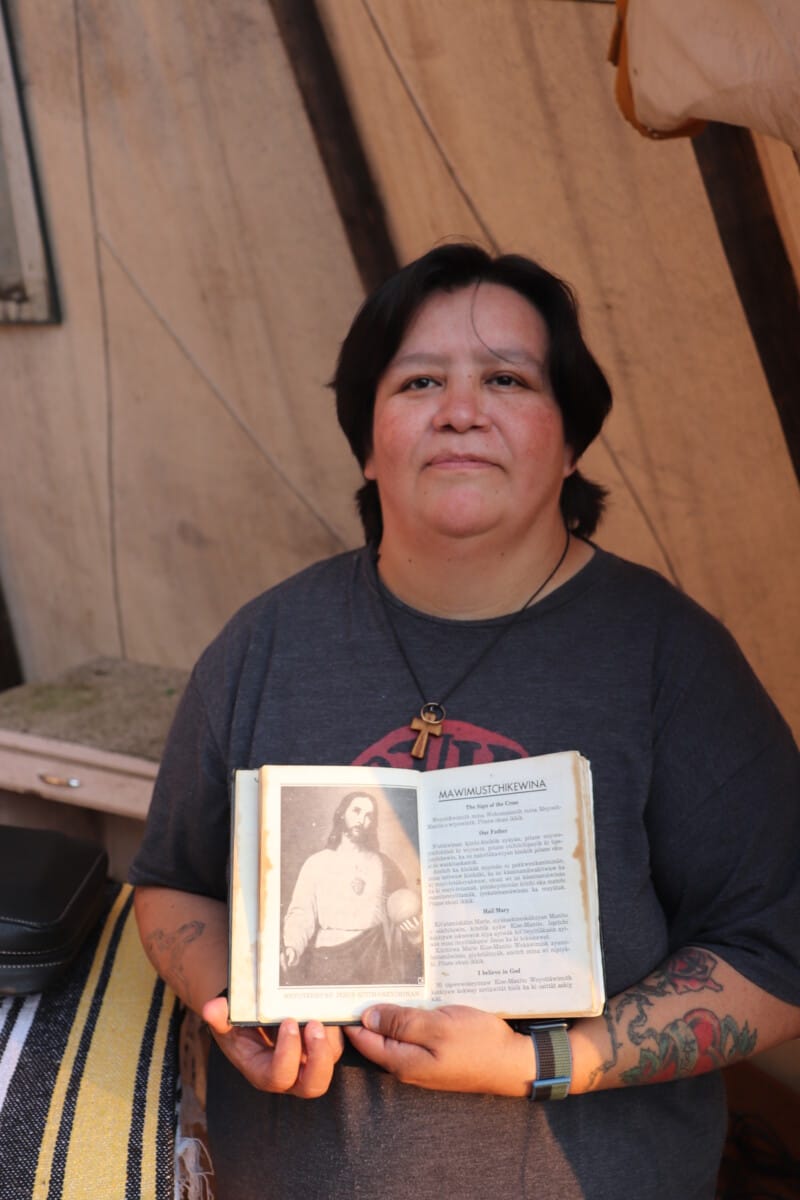
As we made it to John D’Or Prairie, we drove past one evacuation camp where hundreds of people from Fox Lake were still living. At the evacuation sites, at the ferry, and scattered on buildings and homes throughout the Little Red River Nation were signs that read “Fox Lake Strong”, designed as a show of support and encouragement for the reserve as they now try to rebuild from the immense destruction wrought by the wildfire. Three ferries were there to service the community, with a fourth expected to arrive by the end of the summer that will be capable of transporting new trailer homes to the reserve. Crews in Fox Lake are also expected to build 200 new homes before the onset of winter.
As our truck moved onto the ferry to cross the Peace River from John D’Or Prairie to Fox Lake, a worker tapped on the archbishop’s car window, and asked him to bless his wedding ring. These blessings would be a continual feature of our journey; the blessing of a priest was clearly a spiritual power the Cree people of Little Red held in high regard.
The wildfire, though it was now distant from the reserve, was not yet contained, and this has kept many too anxious to return. When we arrived, Fox Lake was still very much deserted. Dogs wandered all through the reserve, with many of them spending day after day at the ferry site. We assumed these poor creatures were eagerly awaiting the return of their evacuated owners.
As we drove through the community we saw first-hand the damage caused by the fire: the RCMP building reduced to a pile of ashes, huge semitrucks that had been completely consumed by the flames now were nothing but rusted steel frames, the community store rendered black as charcoal, with cans spilling out from crumbled walls, and beams of steel that had bent and curled through the intensity of the heat.
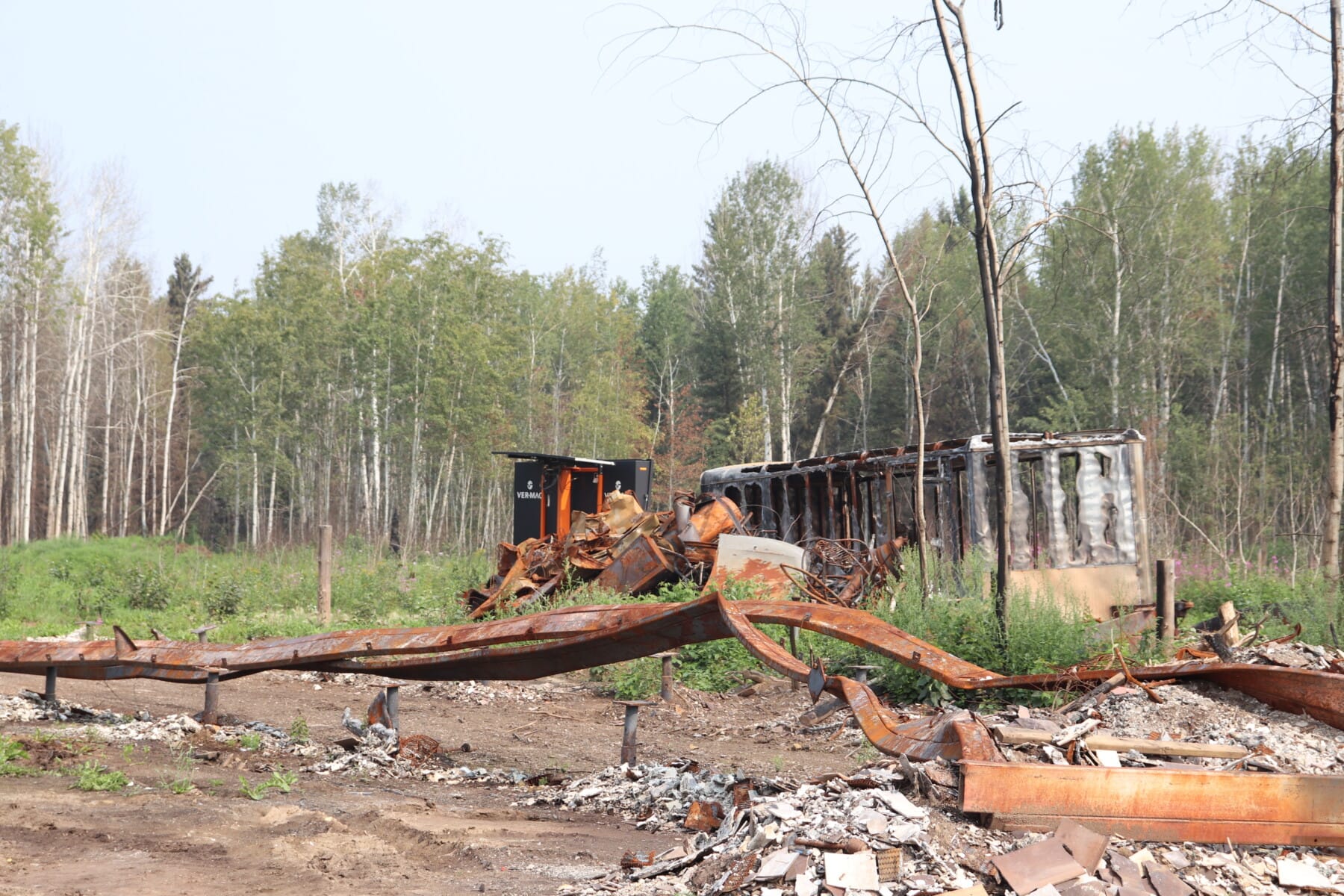
Rhoda later recounted to me the horrors of the wildfire evacuation that had taken place two months earlier. On the night of the evacuation, as billowing flames consumed Fox Lake, she frantically searched for two young nephews who were missing. She travelled down to the ferry site in John D’Or Prairie in search of them, speaking with security and those involved with rescue efforts.
Her nephews were eventually found hiding in her father’s camper, and they had to send in a helicopter in order to rescue them. At the time all Rhoda could do is stand on the other side of the river, watching as pitch black clouds swarmed and swallowed up the reserve.
“It was quiet,” she recalled. “All of us were standing looking at Fox Lake burn from the other side of the river. It was daytime and the sun was out but it looked like it was the middle of the night. You couldn’t see the sun anymore. The only thing you could hear was the occasional propane tank exploding, and then a big puff of black smoke would rise up with it. You could barely see the fire because the smoke was so thick.
“People started crying. I saw my brother at the barge and I hugged him and we started crying. His house was over there. His everything was over there. He said, ‘We will rebuild. We can rebuild, so long as everybody is out’. And then we started praying.
“You’d hear stories, one after another – this person lost their home. Now this person lost their home. Now the store is gone. Now the police station is gone. At first it was like a nightmare. But when you heard those stories – it became real. And all you could do was cry and pray. It’s what a community does in a time of need.”
As we drove through Fox Lake and saw the aftermath of the fire for ourselves, one astonishing sight we came across was the Fox Lake rectory, which stood untouched, despite all properties around it (including the rectory garage only a few feet from its door) completely burned and destroyed. A vital leader and elder of Fox Lake’s Catholic community, Leslie Joe Laboucan, firmly believes the rectory was miraculously preserved from the fire, given that it had been used for Mass and housed a teepee tabernacle with the Blessed Sacrament inside of it.
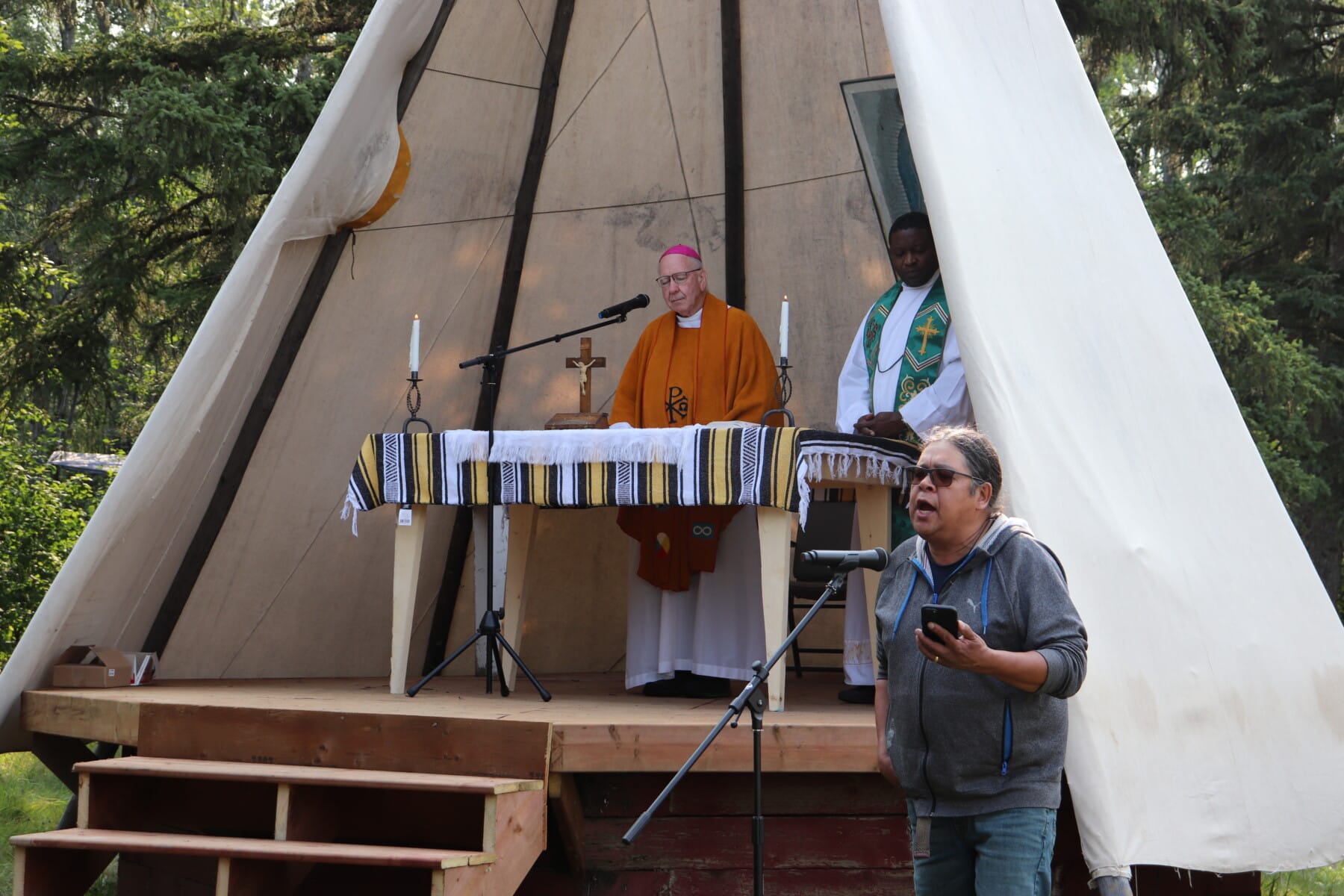
Soon we were driving through the muddy trail leading to the pilgrimage site. We encountered a rather anticlimactic view upon arrival.
Not one camper was on the site, nor one other soul besides ourselves. It was then that Archbishop Pettipas began to worry. He recalled every other year when there would be dozens of tents and campers around the pilgrimage site awaiting its beginning. Now the land was totally empty. Had we travelled all these long hours and through all this muddied and rugged terrain for naught?
Slowly, less than an hour later, Rhoda and a handful of others arrived to begin preparations for the pilgrimage.
For Rhoda, “pilgrimage”, as it is simply called, is a tradition deeply intertwined with her faith and her family. Her dad Bart Blesse was one of the pilgrimage’s founding members, and she fondly recalls her late mother always preparing for the pilgrimage months in advance, preparing dried moose meat, smoked ribs and other food for pilgrims. She especially remembers her childhood years when families would go to the pilgrimage site by horse and wagon; others would walk the whole way as a form of prayer and devotion.
In the initial years, everyone would gather on blankets as Fr. Paul Hernou celebrated Mass in the open field. Over time, a teepee structure would be constructed as a chapel, and benches and shrines were built. For Rhoda, the Little Red River Pilgrimage is the place where her children celebrated their confirmations and first communions, where her cousins were married, where her parents renewed their vows on their 50th wedding anniversary, among many other cherished memories.
“Pilgrimage was always a community thing. There was no division,” Rhoda recalled. “Everybody was close; everybody had friends; there were kids playing everywhere. Nobody was worried about anything. There was no drugs, no alcohol. Everything was peaceful.
“And after a while, as the world changed, everything changed. Now it’s like, for some people, it’s a convenience. Church can be convenient for you.”
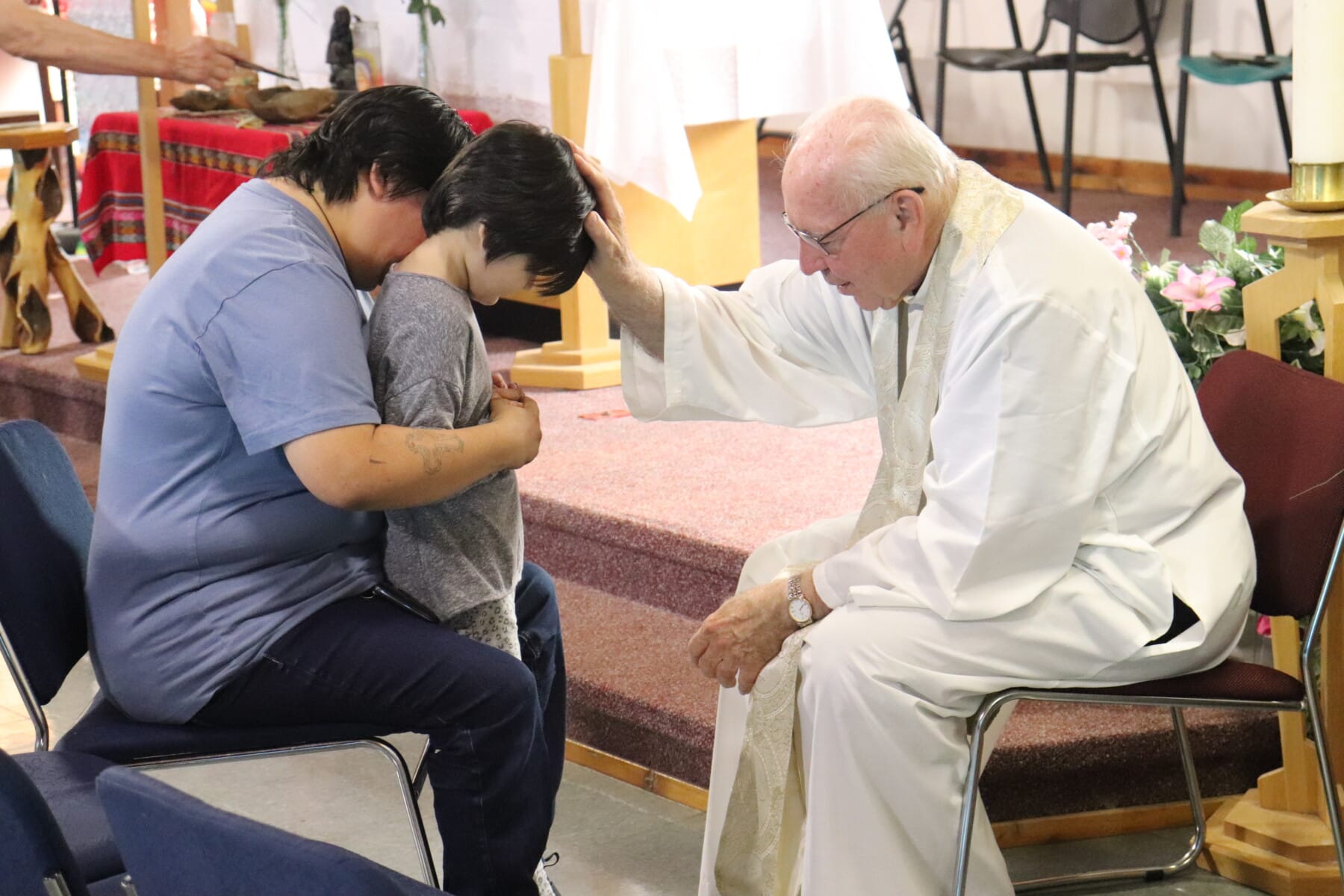
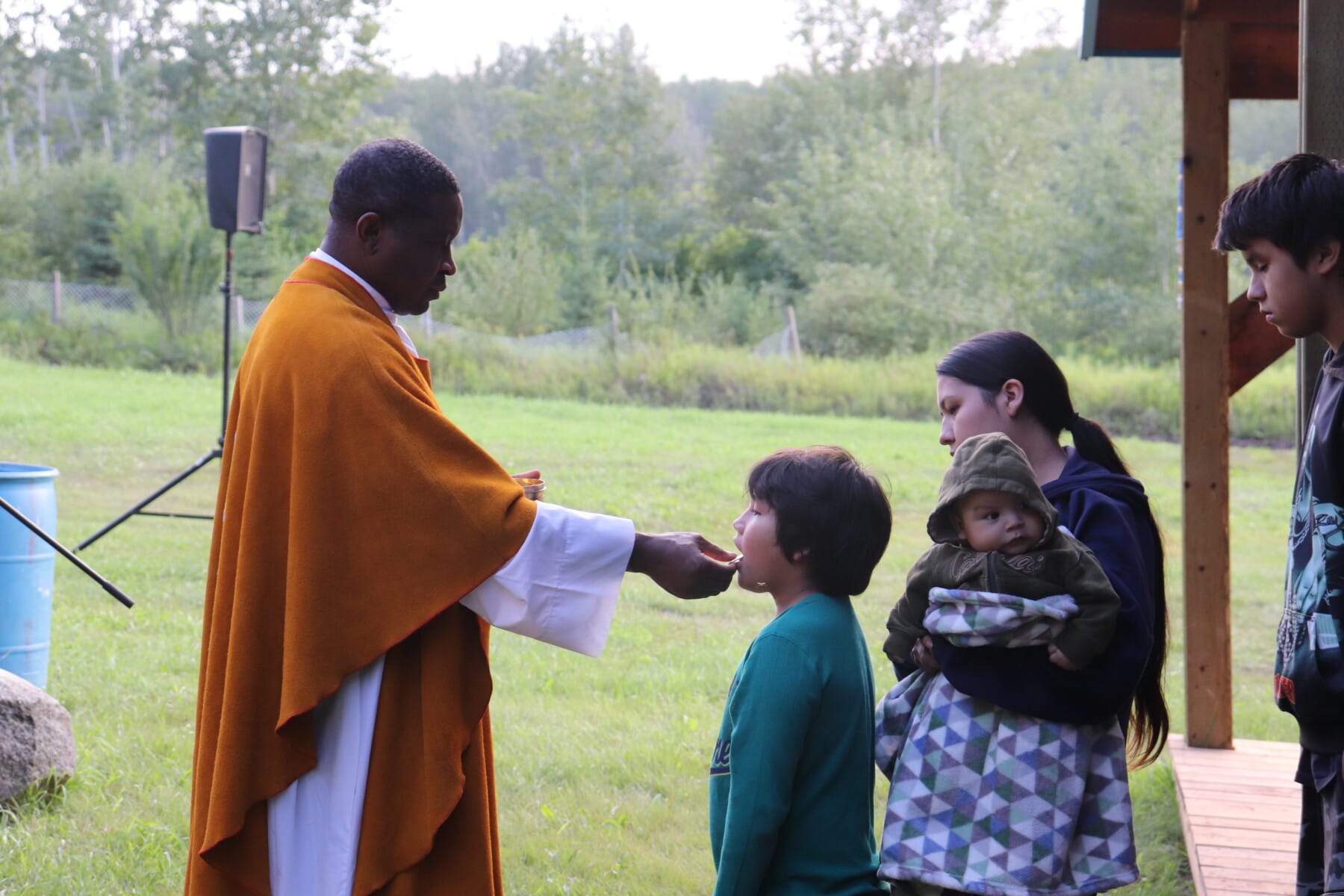
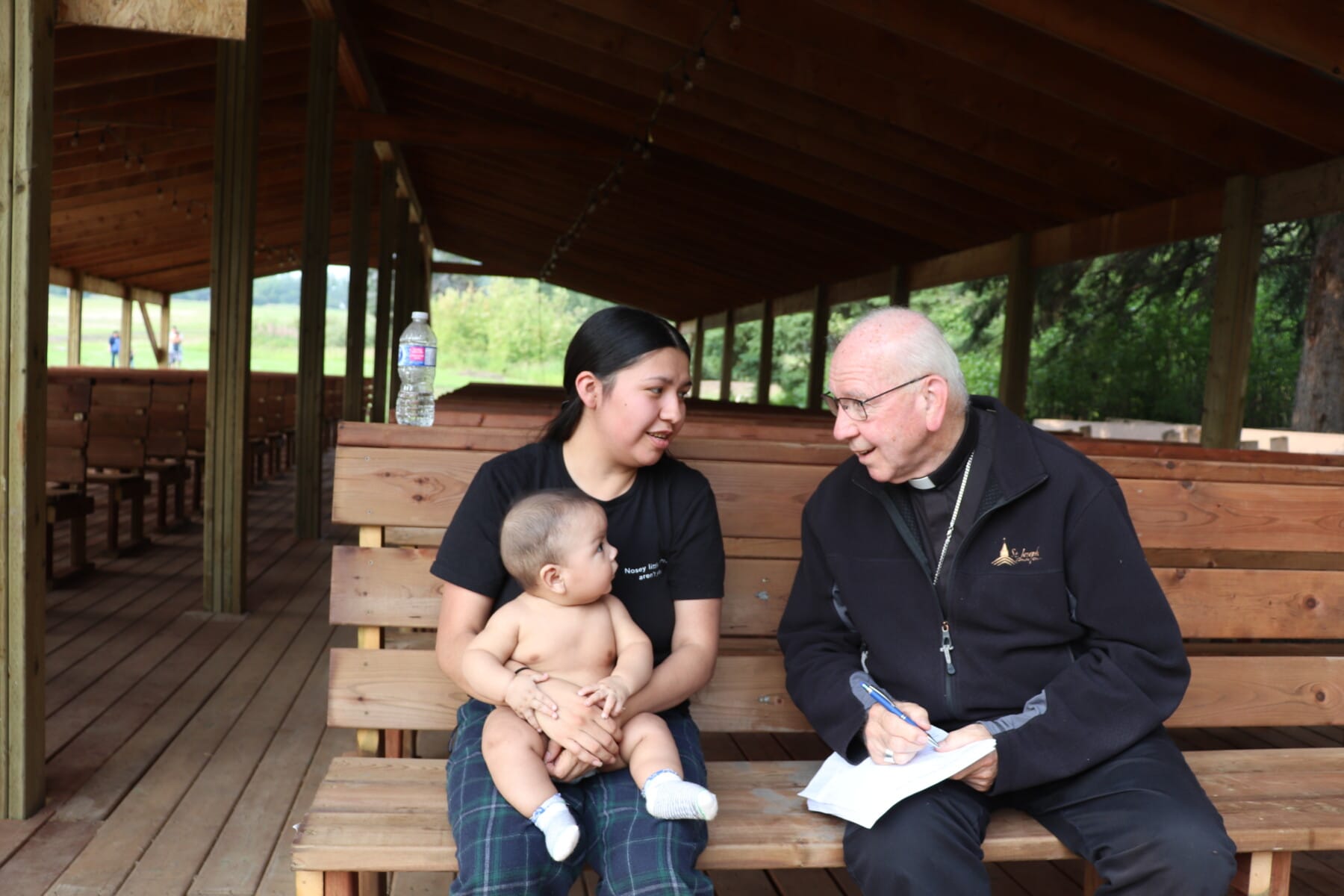
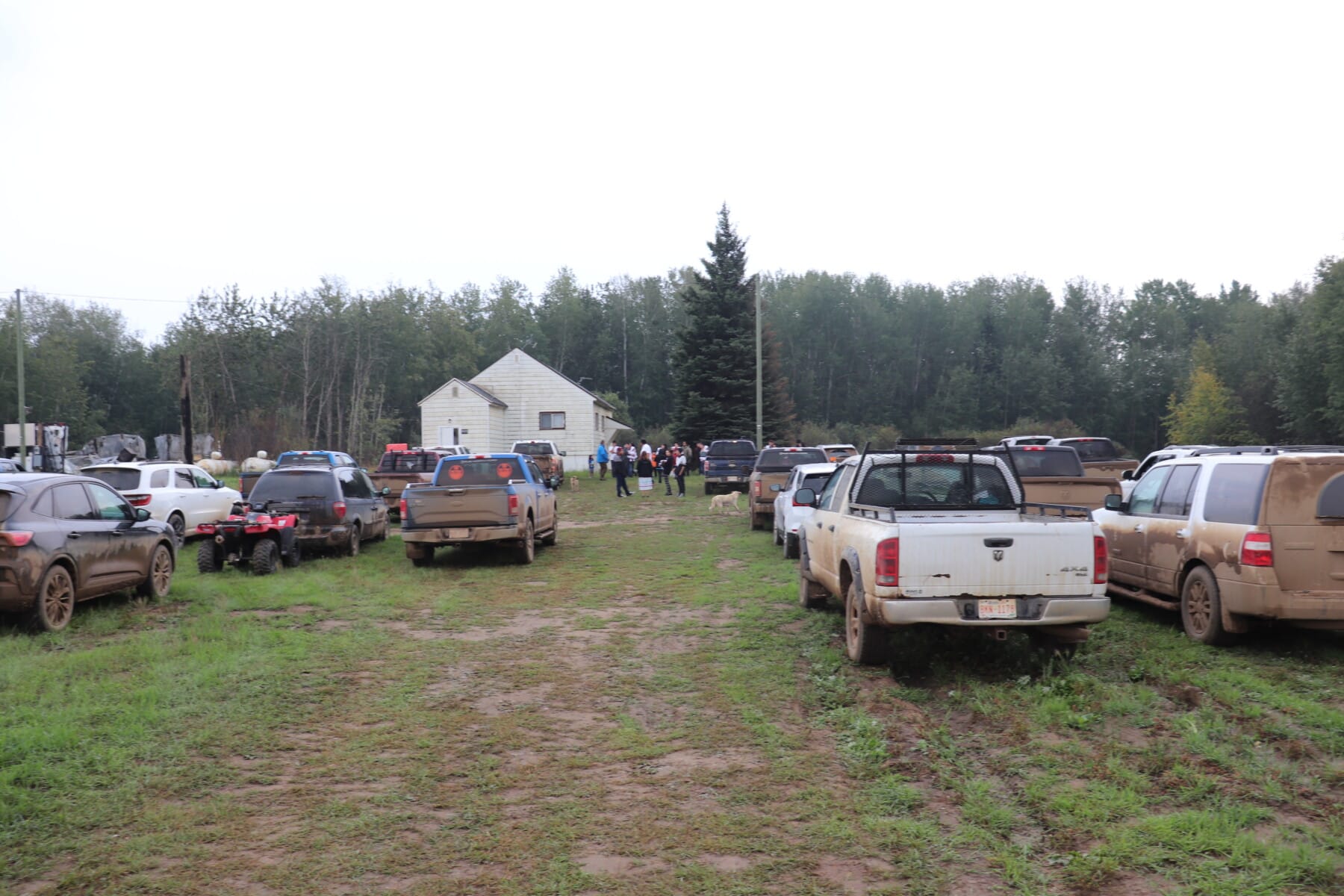
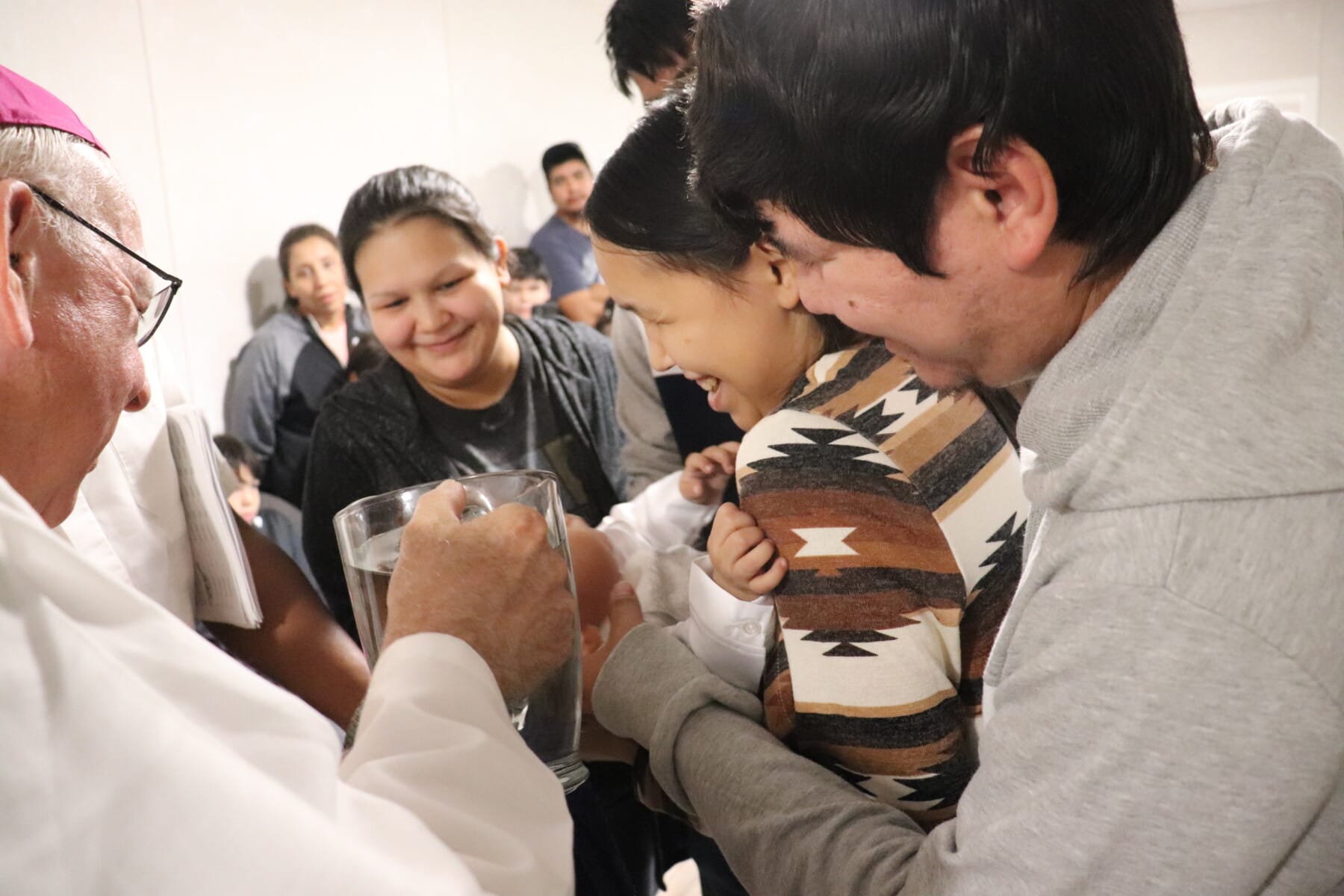
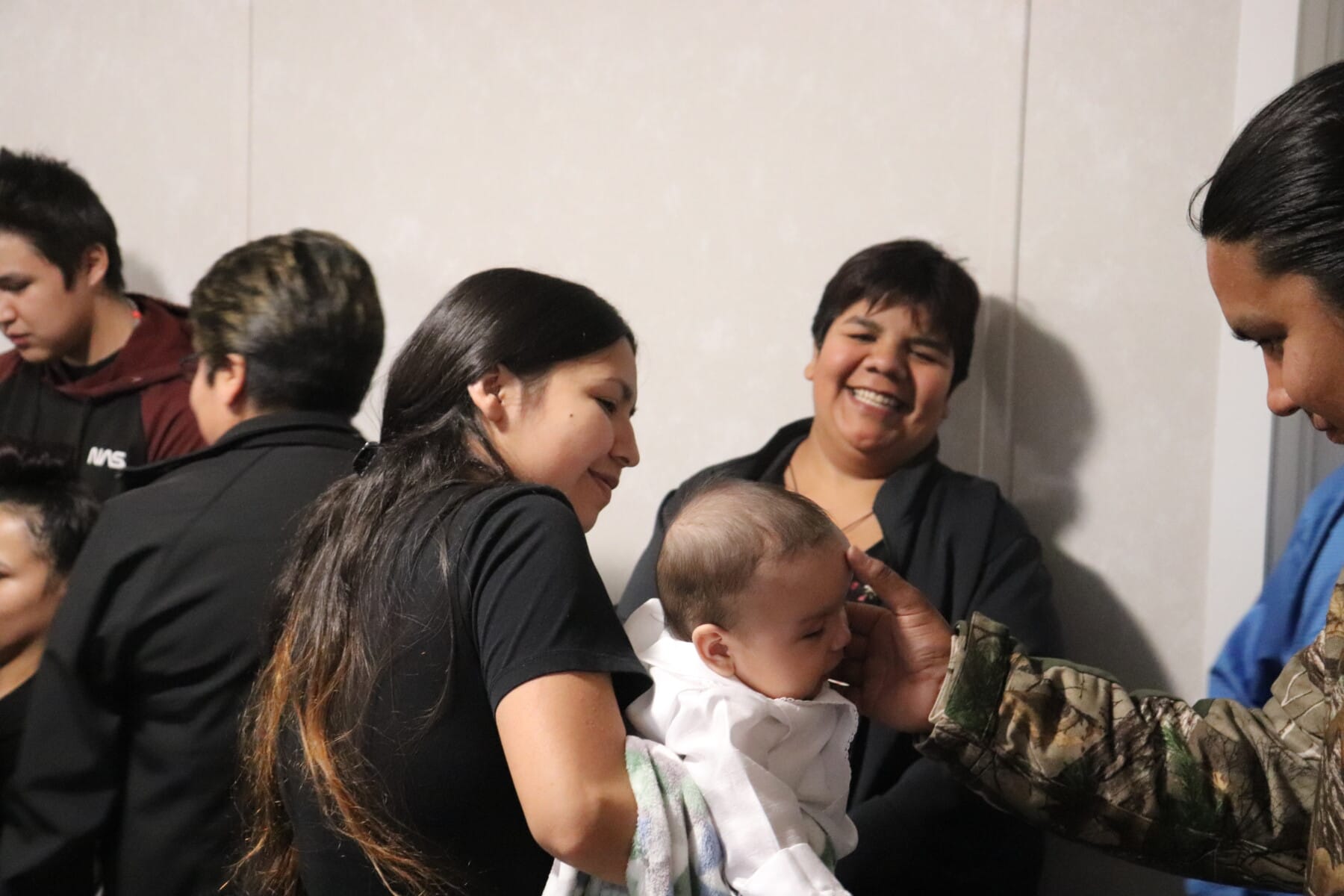
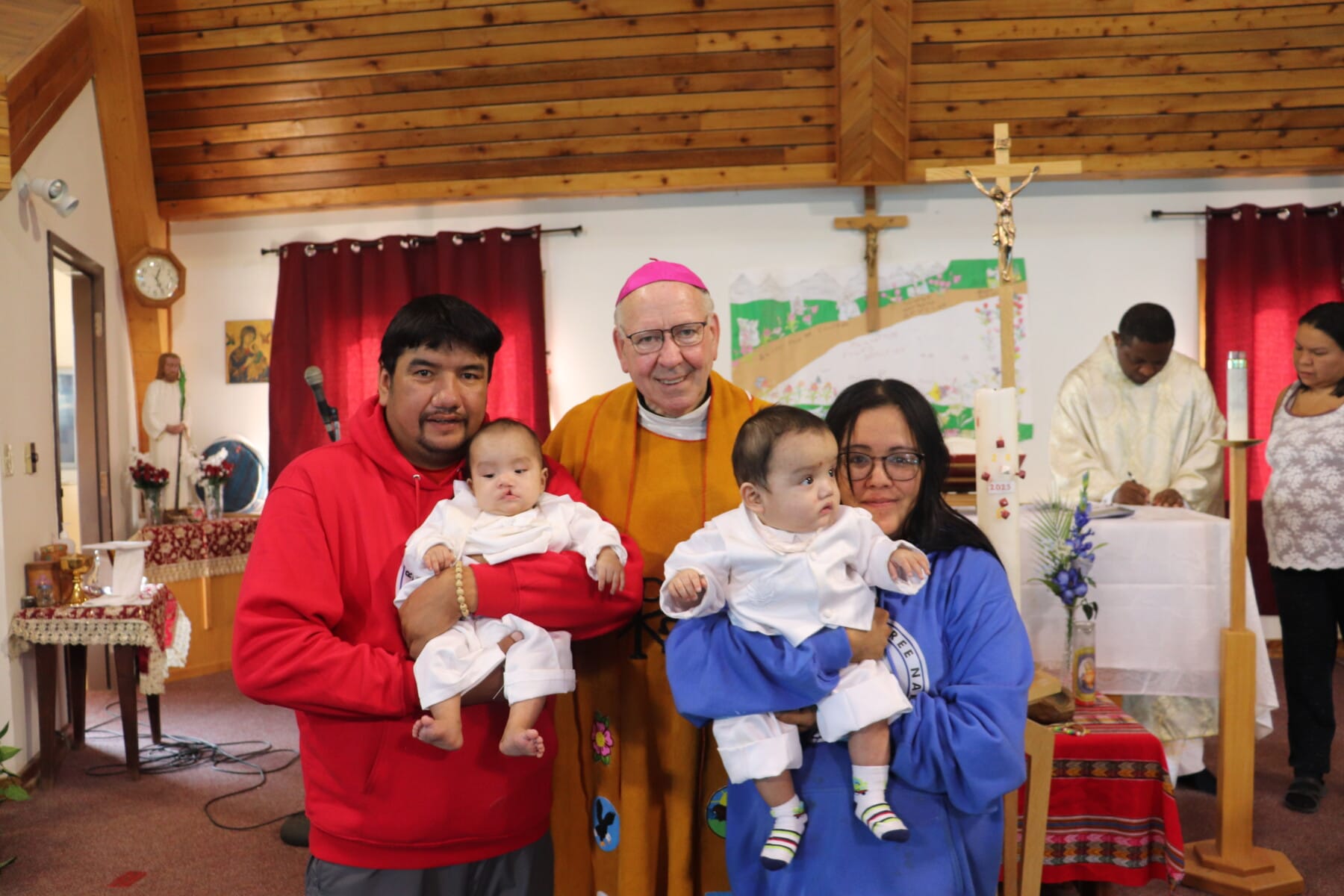
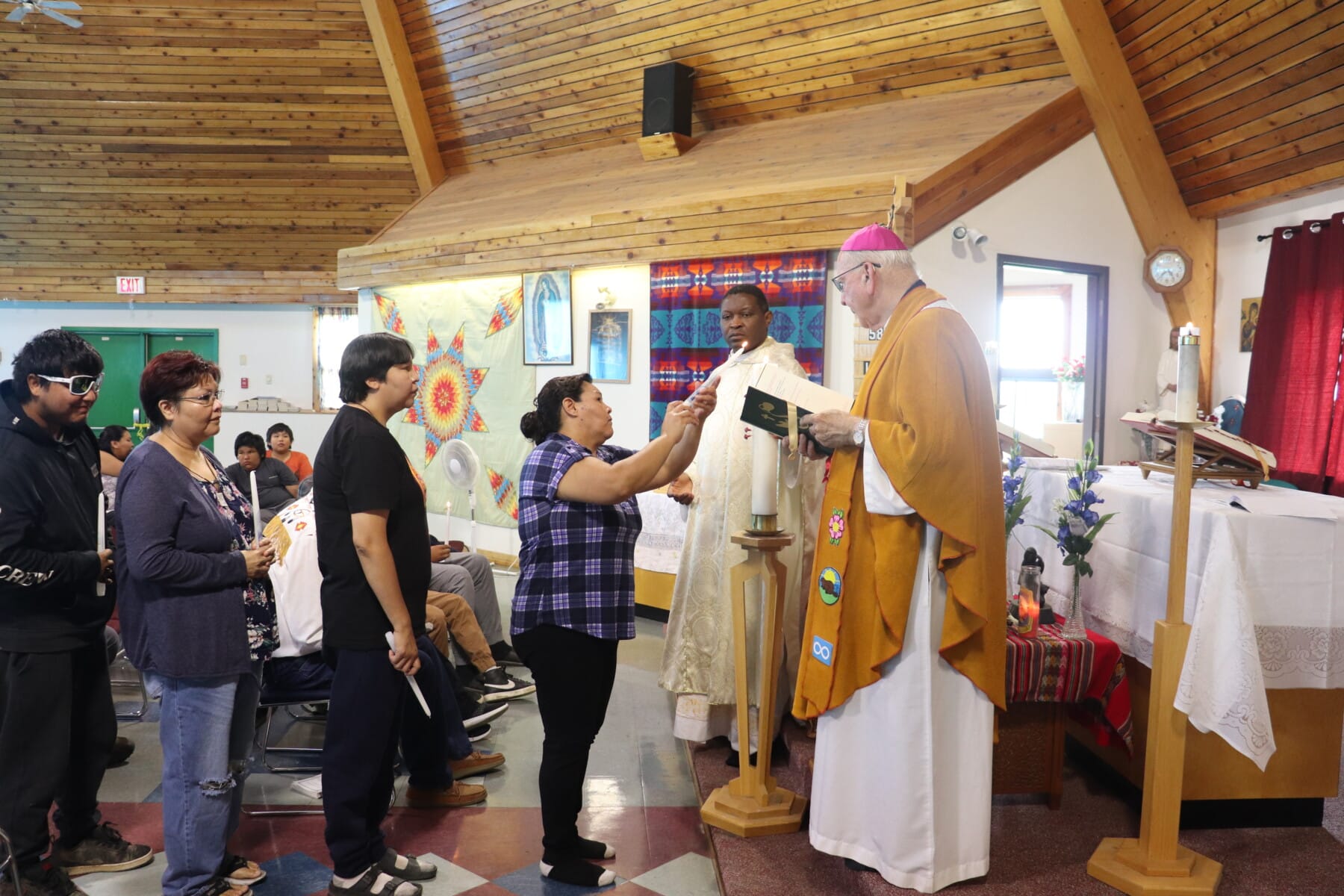
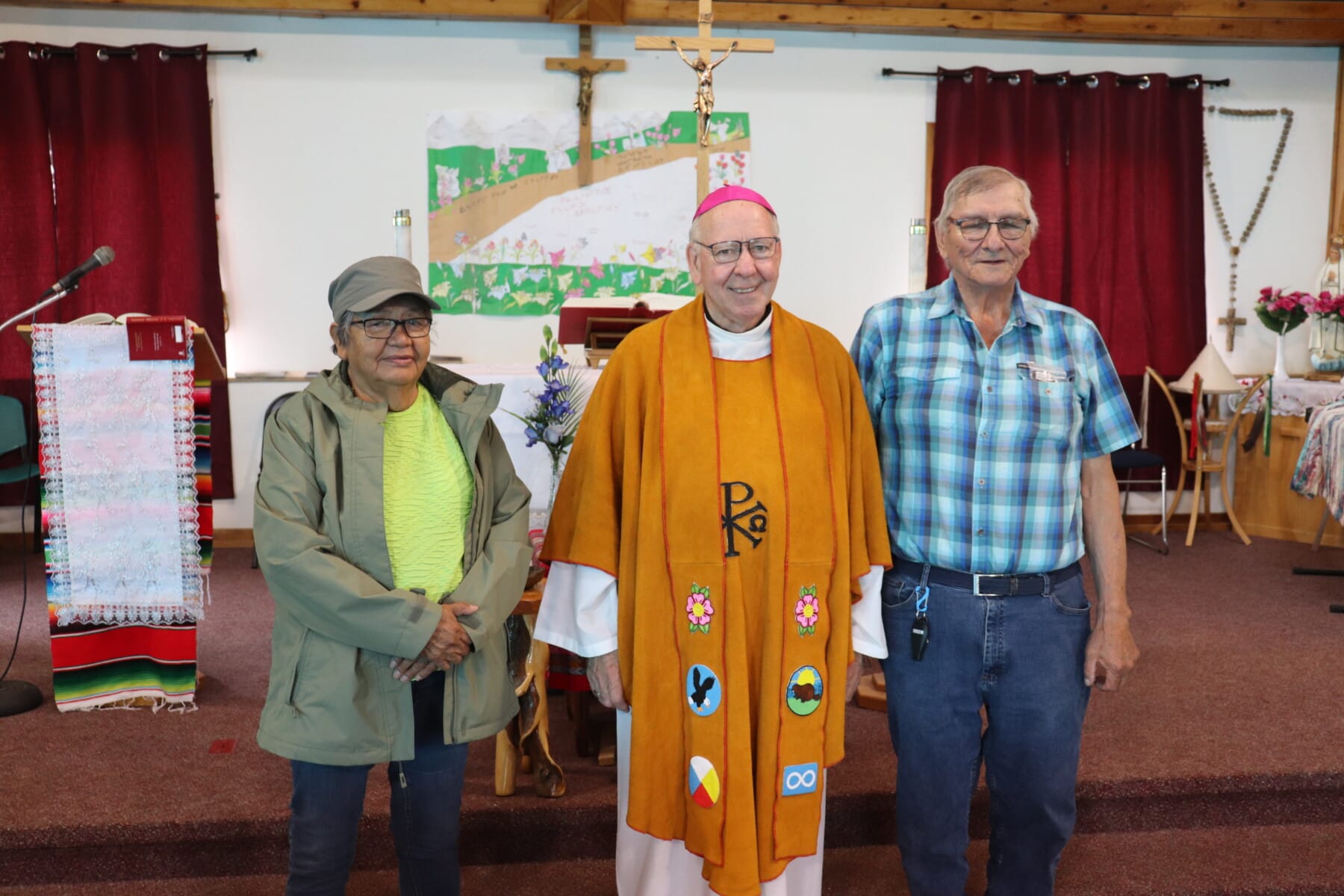
She detailed a problem recurrent in all communities of the modern world: the great difficulty today in bringing young people to the Faith. At one time, it was young and old together that would gather for this pilgrimage, but now, in what Rhoda called an “age of smartphones and iPads”, the constant distraction of digital screens and modern cares seems to erode the desire for faith from people’s lives – these distractions filling the void left in prayer’s place. Many elders, said Rhoda, feel that it is a lack of faith that caused the fire in Fox Lake.
By the end of that Thursday evening we prayed a rosary together, the archbishop blessed the religious items those gathered had brought, and we headed back for the ferry to John D’Or Prairie. As fog creeped in with the departure of the sun, we wondered what would come of this weekend. One thing was clear, this year’s pilgrimage was not going to unfold as it had in years past.
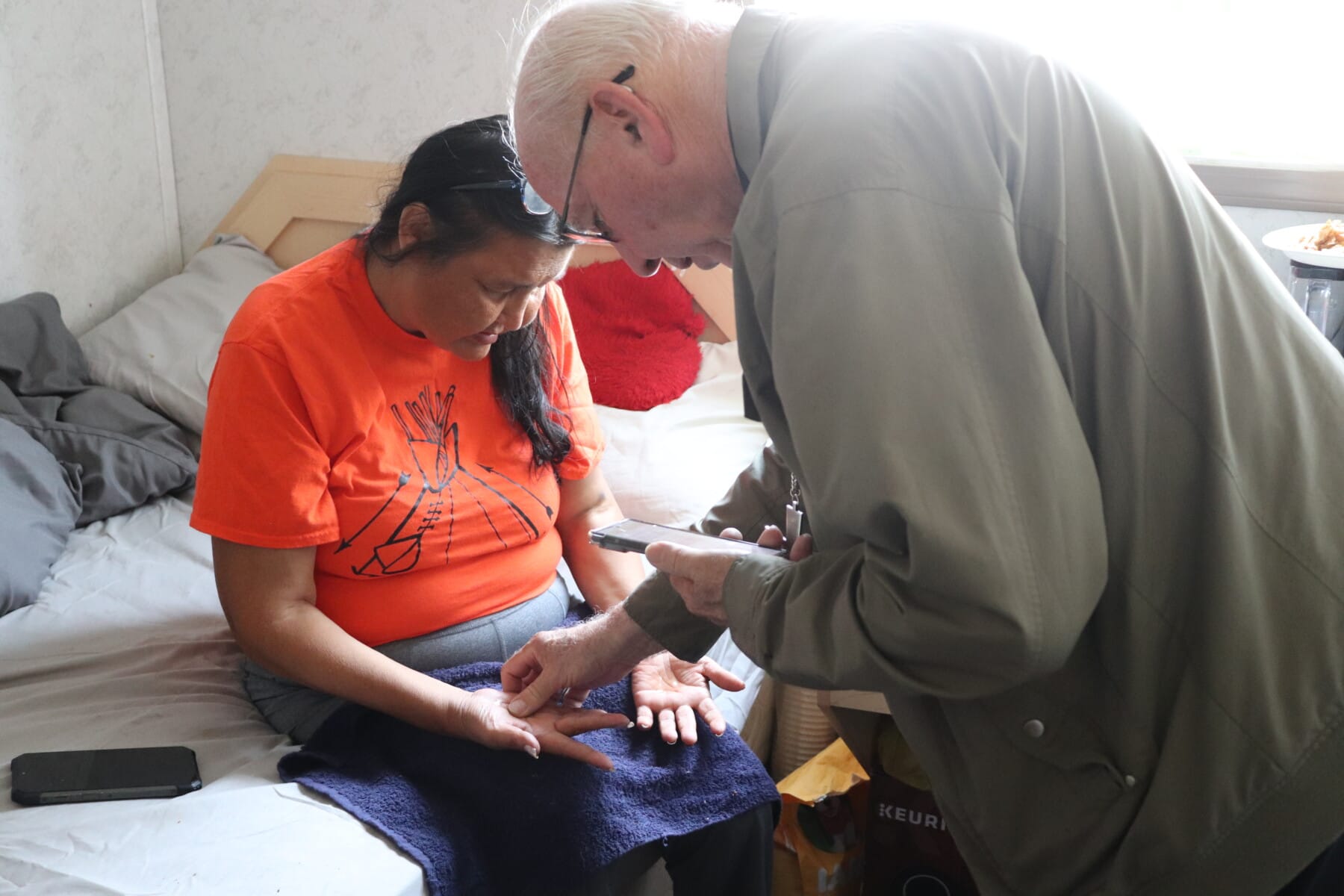
On Friday morning we returned to the site with a few more people having made their way to the area, but it still remained a small turnout. Mass was offered for the people gathered there, for their ancestors, and for those who lost their homes in the fire. For the altar, a small table with a towel for an altar cloth was used. As we completed the Mass, newly constructed confessional booths were delivered to the pilgrimage site – another donation made possible through funding from the Little Red River Chief and Council.
With so few still at the pilgrimage site, we decided in the afternoon to venture to the evacuation camps in John D’Or Prairie, to meet with the people there. Around 3,700 people had been evacuated from Fox Lake, with over 1,250 still living at the evacuation camps in John D’Or – the camps now nicknamed “Little Fox Lake”. There they live out of one-room trailers with a bed, a small dresser, and a television. With these three items in stow, there is just a small sliver of space left to walk into each trailer.
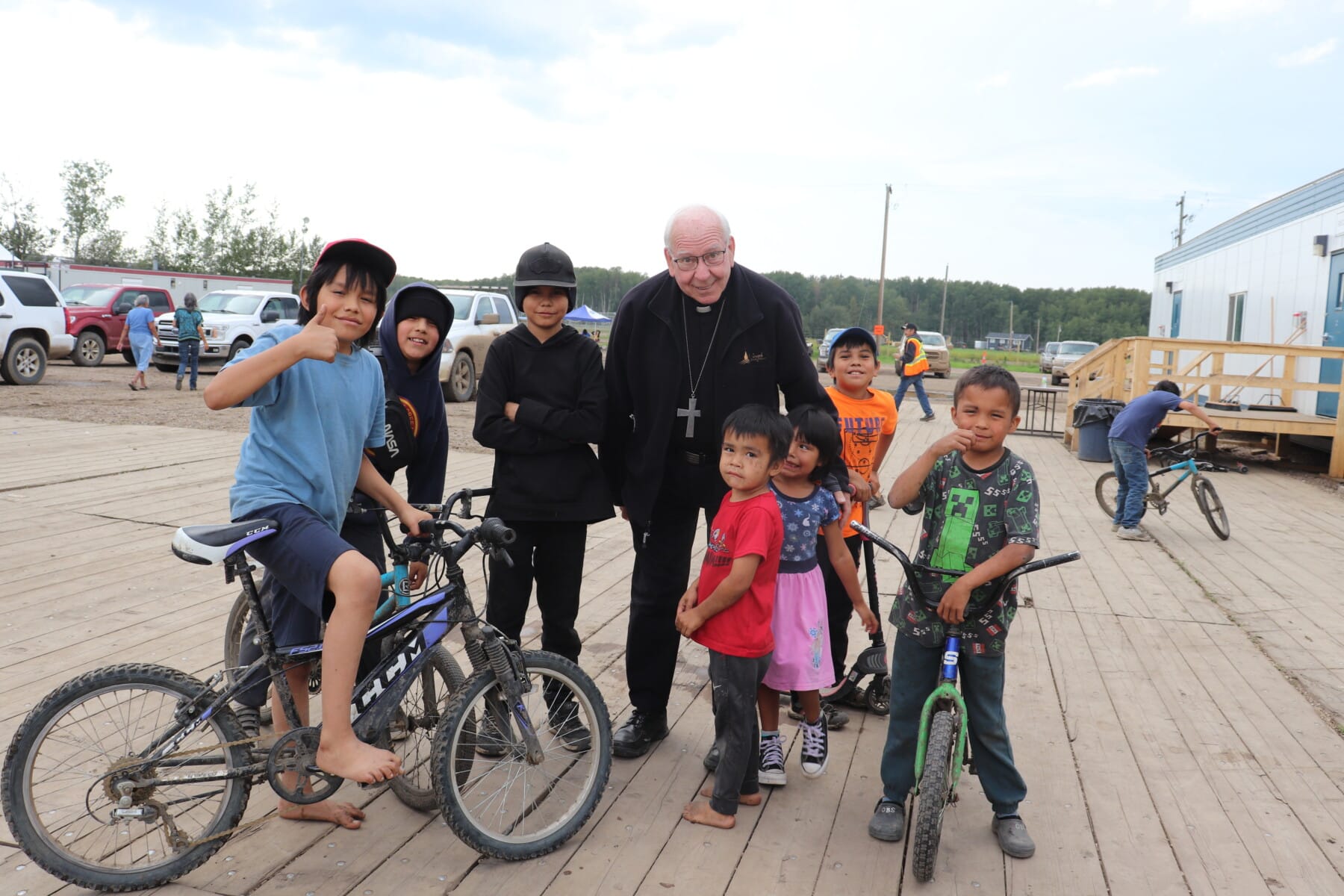
When we arrived, we found children outside playing with a variety of toys and bikes. They immediately gathered around us, thankful there was someone new to occupy their time with. The children voiced their homesickness and their longing to get away from the difficulties and limitations of life in the camp. Archbishop Pettipas walked around meeting with people, inviting them to the pilgrimage grounds, and blessing whatever items people brought to him.
In each conversation we saw how visibly distraught the people were, wishing to be back again in the homes they had lost.
“It’s a huge loss. The worst is that people lost things that can’t be replaced – family heirlooms, pictures,” one evacuee told us. “All the time I see people on social media talking about how they miss home, and they share memories of things that have been lost. Living in hotel rooms or camps, living off of restaurant food, not being able to sleep in your own bed, the kids not having a lot of room to play around – it’s all difficult for us.”
This is only an excerpt. Read the full story in the September 2023 edition of Northern Light
